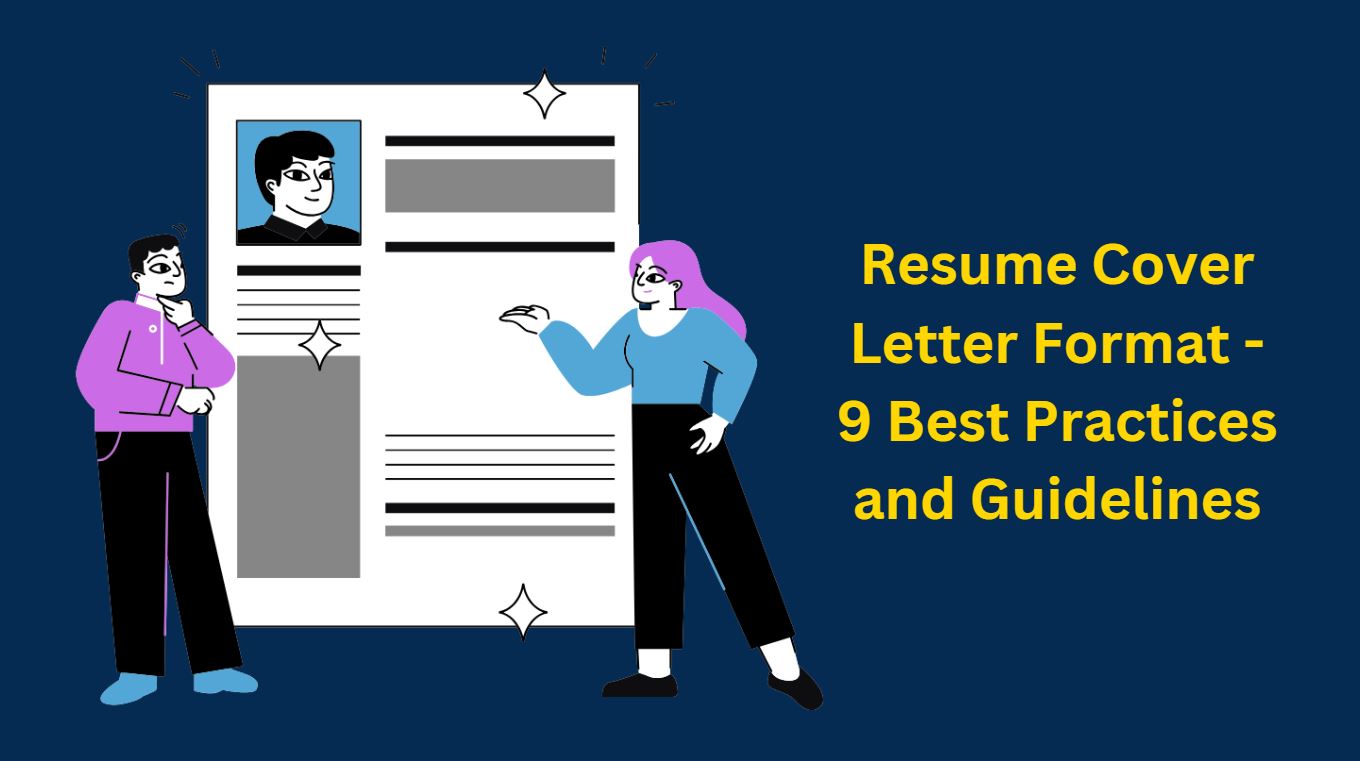- Likes
- Followers
- Followers
- Followers
- Subscribers
- Followers
- Members
- Followers
- Members
- Subscribers
- Subscribers
- Posts
- Comments
- Members
- Subscribe
Resume Cover Letter Format – 9 Best Practices and Guidelines

If you are looking for the new job then cover letter along with your resume is must. You need to look into resume cover letter format also where customized introduction and emphasized qualifications in a well-written manner are needed which can greatly improve your job application. Your CV or resume is not the only document that matters but importance of cover letter can’t be ignored when looking for a new job. Earlier you learnt resume quality checker which helps in creating CVs as per the industry standards. While maintaining a professional resume cover letter format is crucial if you want to leave a good impression on prospective employers. I’ll go over the best practices and rules for organizing a resume and cover letter in this post so that you can impress the hiring managers.
Resume Cover Letter Format and Guidelines
Posts You May Like
- Header Section
Your contact details, including your full name, city, state, ZIP code, phone number, email address, and, if you’d like, a link to your professional website or LinkedIn page, may be included in this part. You should make sure your contact information is up to date, professional, and corresponds with your resume. - Recipient’s Contact Information
Below the date in this area, you should have the hiring manager’s contact information in the format of a business letter. If you know the name of interviewer or the recipient of your resume and cover letter then address the recipient by name. If you are unfamiliar with their name, address them with a general greeting like “Dear Hiring Manager” or “To Whom It May Concern.” Whenever possible, avoid using lifeless greetings like “Dear Sir/Madam” because they come out as impersonal. - Body of the Cover Letter
In this section, you should include sentences that begin with a catchy opening paragraph that conveys your interest in the job and your confidence in your suitability. To further explain your qualifications for the position and to highlight your accomplishments, experiences, and relevant skills, write two or three body paragraphs. When it’s feasible, highlight your professional successes using quantifiable examples. - Closing Section
In this final section, you extend an invitation to the hiring manager to schedule an interview at the end of your cover letter. When concluding a professional correspondence, use expressions such as “Sincerely,” “Best,” “Respectfully,” “Regards,” or “Thank you,” and then append your name. You may restate your interest in the job and your excitement for the chance to go into additional detail about your qualifications in the concluding paragraph. - Signature
Your signature and a formal ending should be included at the end of your cover letter. A typed signature is acceptable if the cover letter is being sent digitally. Make sure to leave room above your typed name for your handwritten signature if you are mailing a physical copy. - Formatting Tips
For body text, you should use a plain font type such as Arial, Calibri, or Times New Roman in a size of 10–12 points; for headers, you can use a little larger font. For uniformity, you can keep your margins at one inch on all sides. You can choose 1.15 line spacing or single spacing for the left-aligned body text. In order to avoid editing and maintain formatting across devices, you should save your cover letter as a PDF. - Length
Because a cover letter is different from your CV which is specific for a particular job application, you should keep it brief ideally no more than one page, or between 250 and 400 words to keep interviewer interested. - Proofreading and Editing
You should make sure your cover letter is error-free in spelling, grammar, and punctuation before sending it. Once again you should be double sure for the typos or formatting errors, and that the information flows properly. You might also ask a trustworthy friend or coworker to read and provide feedback on your cover letter. - Customization and Personalization
Lastly, never forget to customize and individualize your cover letter for each job application. Writing a cover letter specifically for the position and business shows that you are really excited about the opportunity and interested in it.
You may significantly enhance your job application and raise your chances of getting an interview by formatting your resume and cover letter in accordance with best practices and recommendations. You can write a professional and attention-grabbing cover letter that successfully showcases your skills and leaves a good impression on prospective employers or hiring manager by using the advice in this article.
Finally, you may write a well-organized cover letter that clearly conveys your qualifications and enthusiasm for the job by adhering to these formatting recommendations.
Image credit- Canva


[…] Resume Cover Letter Format – 9 Best Practices and Guidelines […]